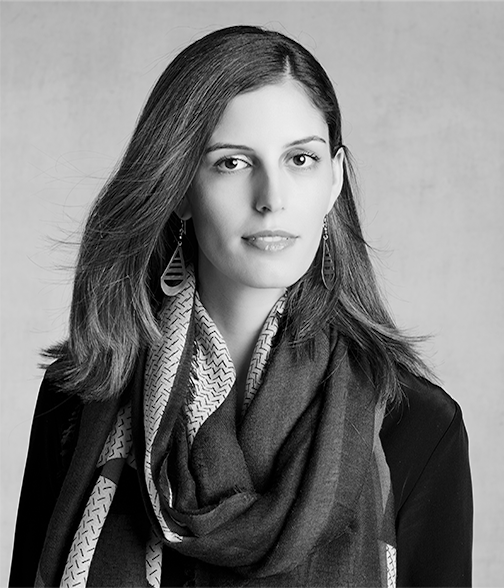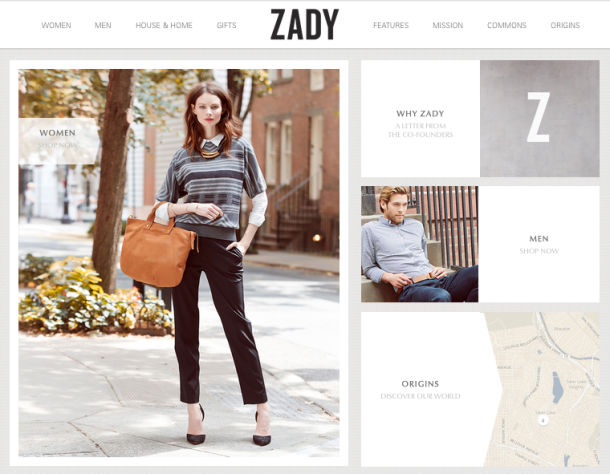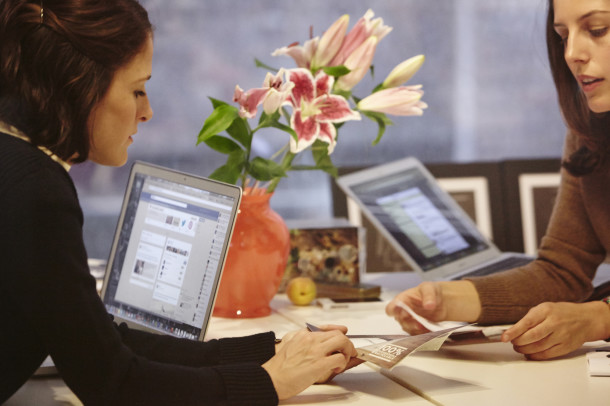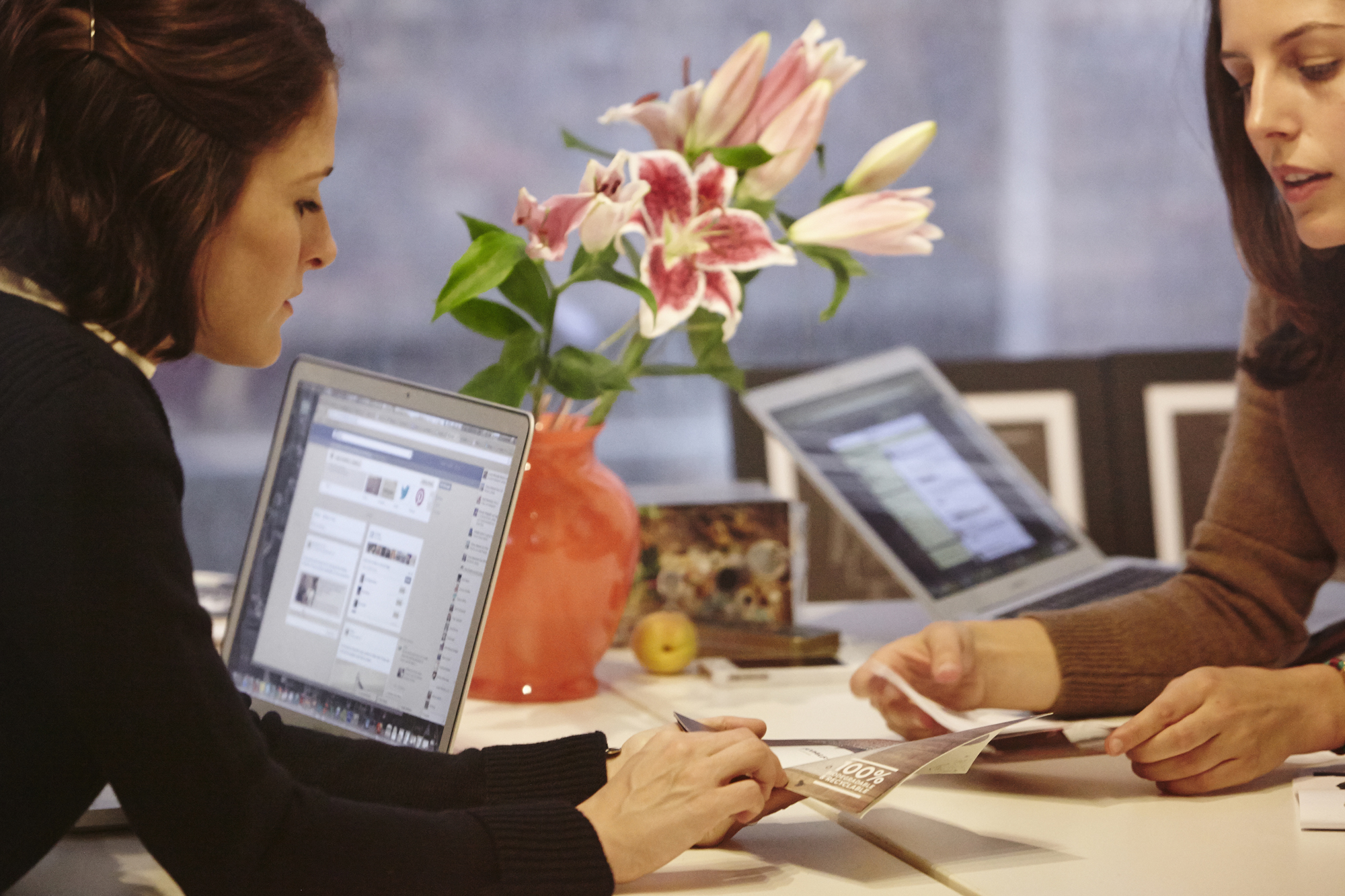
I had the distinct pleasure of meeting Soraya Darabi on the second day of the WIE Symposium after she spoke on a delightful panel called “Breaking the Rules: Generation NOW”. As long as I’ve been interested in the tech/start-up community in New York, I’ve looked to Soraya as a strong, admirable leader. Soraya has held positions at the New York Times, drop.io and has co-founded the famously popular mobile app Foodspotting. She’s an advisor to Levo League and is an active investor in several tech start ups.
Now, Soraya is gracefully switching gears into her newest endeavor as co-founder of Zady, a socially responsible e-commerce platform that works with fashion companies that locally source and manufacture their products – giving both men and women an entirely new experience of shopping sustainably. We talked about everything from the revival of New York’s garment center to entrepreneurship to slowing down fast fashion.
Lala: While you were at the Times, did you have it set in your mind that you were going to be an entrepreneur and an investor?
Soraya: No, no, no. While I was at the New York Times, I was just happy to have a dream job and to working with reporters I idolized and to be in the middle of the news cycle, it was such a thrill. It was the fact that my job eventually manager of digital partnerships and my role was really to help the New York Times partner with up and coming start ups. It was then that I met very inspirational, mostly male founders of tech companies and I wanted to do what they did.
Lala: If you could give any piece of advice to a woman entering a male-dominated field like the tech space, what would you say to her?
Soraya: I would say to her that its not always going to be easy. There will be moments when you doubt yourself. There will be moments when you’re faced with an uncomfortable situation. One of the tech start ups that I worked with offered a gym pass to all of its employees. And that sounds nice, but the gym was a boxing gym and I went once and felt completely out of my realm. And felt intimidated of my colleagues that were bonding over boxing and thought to myself, if I have a company one day, I’d never going to make the mandatory gym time together something that makes one employee feel isolated. Instead, I’m going to create a culture with my team that is open and accepting. I think that women are particularly good at that. And to the advice that I give to a young woman just starting out is to have courage, perseverance. But also go easy on herself when the industry knocks you down a little.

Lala: It’s quite the change to transition from Foodspotting now into your new company Zady, what influenced your move?
Soraya: Foodspotting was a wonderful experience and a couple of the best years of my life. I knew that from Foodspotting I wanted to start something again. I took some time off to really contemplate what did I want the next move in my career to be. Would it be something that was purely prestigious? Would it be something that was financially lucrative? Would I kind of consult and wander for a long time to try to find my footing? And I met with a mentor, a man that gives exceptional career advice and he said to me ‘Don’t just jump into the next job. Really spend time meeting people cross disciplines, in all different fields and go where the energy takes you. Find something that makes you excited to wake up in the morning and work on that project and put all of your energy behind that.’
So during this time, I had reconnected with an old friend and classmate of mine, Maxine Bedat from a small school in Minnesota, that we both went to. And Maxine had started a non-profit in law school called the Bootstrap Project, which helps artisans in the developing world pick up after a micro-financial loan and really begin a business to preserve a heritage craft. I thought what Maxine was doing was phenomenal and I found myself talking to her about helping out with the Bootstrap Project. A few months later in excited exchanges about the supply chain and what was happening to not only authentic and beautiful crafts in Zambia but also brands here in the US. We’re losing a lot of our industry, especially textiles. We started exchanging a lot of articles and said something’s about to change. We can feel it. And started drawing parallels between the slow food movement and what now seems to be happening with fashion – people caring a lot more about the origins of their products. And Zady was born in those conversations and I never looked back.
Lala: A great deal of people have all of an invested interest in social responsibility, sustainability, in eco-friendly fashion companies but sometimes what happens is that the masses tend to shy away from these companies because style is sacrificed. But with Zady that is not the case. Tell us a little bit about that.
Soraya: I’m so lucky that my partner has a beautiful eye for merchandising. With Zady, style comes first but we know that the story is of the utmost importance in helping people feel good about what they own. Not so they can buy, buy, buy, buy, buy – more, more more. But so we can own pieces that can stay in our closets, in a curated fashion, and last for years to come. To the point in which, you really know what you look good in, you know how to style that one piece four different ways. We want to be the website that people go to not when they want to buy more and quickly and franticly to pick up the trends – but the website that people go to for classic and timeless style.

Lala: It’s so important because the pendulum always swings and right now we’re in the land of waste and fast fashion. I understand that things tend to happen very quickly and that’s whats going on now but the pendulum will swing where quality is the necessity.
Soraya: We hope so. And I think the success of brands like Steven Alan.
Lala: I love Steven Alan.
Soraya: Yeah, the shirt that I’m wearing right now is his that they made in the garment district here in New York – which is going through a big revival of its own. Just a week ago, CFDA announced a partnership with Andrew Rosen and NYCEDC to bring major machines back to the garment district of New York. Knitting machines which are quite costly to encourage designers to be manufacturing here. I want the city to do more to support local designers and to keep design local. Not because I have anything against manufacturing overseas but when we’re not adhering to our own laws and we’re not in complete control of the process – I think craft is lost and I think sometimes things can get out of control.
The tragedy of Rana Plaza in Bangladesh only showed us what happens when one brands shells out their brand to a contractor who subcontracts the product and the process for that product to another contractor, before you know it your name is behind some of the unethical manufacturing in the world. That will never happen to Zady. We will always be cognizant of the brand that we sell and the stories behind them because we feel like it’s time that people had a brand that they feel that they can turn to, that felt safe.
Lala: Do you ever see a private label happening?
Soraya: Yeah, we do.
—
It was a pleasure speaking with such an articulate, genuine, female entrepreneur and fellow Gen-Yer. I hope you walk away with the same level of inspiration and unity I felt after doing this interview with Soraya. We all can achieve what we want, we just have to keep our passions close and our communities closer. Check out Zady, I’m sure there will be tons of pieces you’ll fall in love with and every purchase helps an artisan in a developing country fund their business. “Design with purpose.” www.zady.com

